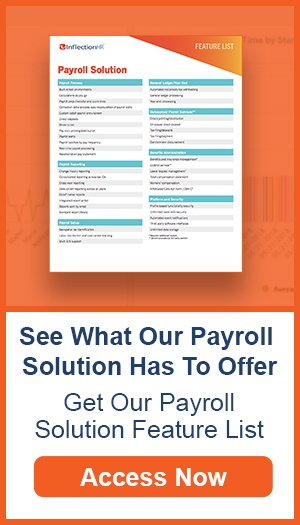The Fair Labor Standards Act (FLSA) has been a hot-button topic for the pros at the HR Support Center. Read below for how they recommend handling employees who only worked one day of the week.
How to Pay Exempt Employees Who Worked Only One Day in a Single Week
It can be very difficult to properly classify an employee as exempt or non-exempt, but payroll compliance can get even trickier when you employ exempt workers.
Q. I have an exempt employee who only worked one day this week, but claims he needs to be paid for the whole week. Is that right?
A. Quite possibly. Under the FLSA, most exempt employees need to be paid their regular salary each pay period, regardless of the number of hours they put in. However, there are some circumstances in which an exempt employee's salary may be reduced.
Under the FLSA, deductions from exempt employee pay are generally permissible in the following situations:
- For any workweek in which they perform no work
- In the first or last week of employment, if they don’t work the full week
- For instance, if an employee works one day and then quits
- For absences of one or more full days for personal reasons other than sickness or disability
- For absences of one or more full days due to sickness or disability if the deduction is made in accordance with a bona fide sick leave plan (to be bona fide the plan must provide at least five days of paid leave)
- To offset amounts an employee receives as jury or witness fees, or for military pay
- For penalties imposed in good faith for infractions of safety rules of major significance
- For unpaid disciplinary suspensions of one or more full days imposed in good faith for workplace conduct rule infractions
- When they take unpaid leave under the Family and Medical Leave Act (FMLA)
Unless any of the exceptions above apply, your employee should be paid his usual salary, even though he only worked one day during the week. However, if he has a vacation or paid time off bank you can certainly reduce the number of hours he has available for future use by the number of hours he missed during this week (assuming, of course, that this is a standard policy and practice). Having the right payroll solution in place is key to managing exceptions and such.
In addition, proper employee scheduling solutions, as well as cloud-based time and labor, will help track all of this information making these types of decisions much easier for the employer.
If you are an employer who is struggling with employee classification and payroll compliance, then simply understanding different employee types and classifications might not be enough. It may be time to consider a cloud-based payroll solution, so you can better manage your compliance. To see how Inflection HR is already helping countless businesses manage payroll and FLSA compliance, contact us today.
*This content is intended for educational purposes only and should not be considered legal advice.*



